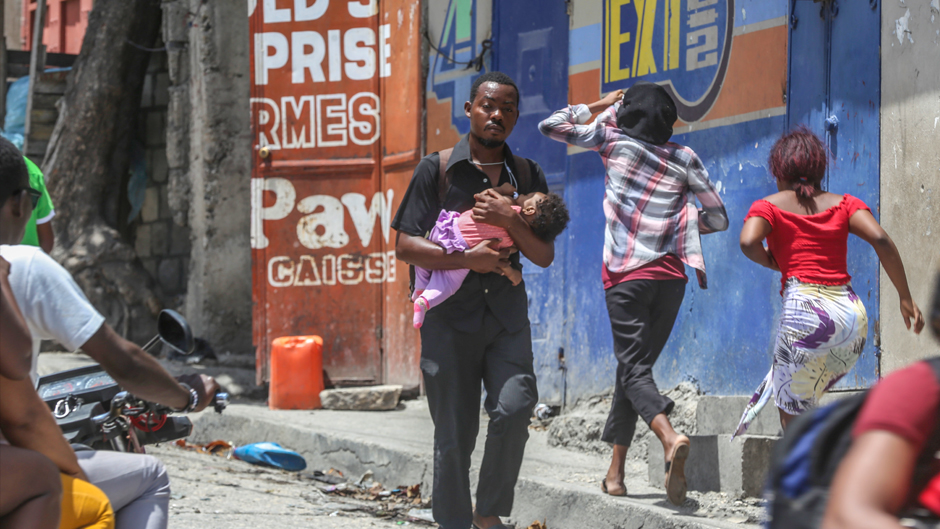The future of Haiti appears to be uncertain.
Armed gangs continue to control parts of the capital of Port-au-Prince. Kidnappings and medicine and food shortages are common. A de facto government led by Prime Minister Ariel Henry currently heads the country after the assassination of President Jovenel Moïse in July 2021.
“Something has to be done because of the gang activity, food and housing insecurity,” said Irwin Stotzky, professor at the University of Miami School of Law. “To assume that Prime Minister Henry is at the core of solving these problems is ridiculous. Nobody thinks he is the answer to Haiti’s problems. Rather, they think he is part of the problem.”
So far, the United Nations has not agreed to send an international force into the country. Currently, there is a proposal to send a force of 1,000 Kenyan police officers to help stabilize Haiti’s understaffed and under-resourced police department. Last week, a Kenyan security team visited Haiti to assess what is needed to help curb the violence in the capital.
Experts say that sending Kenyans will not help Haiti.
MarieGuerda Nicolas, a Haitian-born professor at the School of Education and Human Development, said that she feels the proposal of sending Kenyan troops is “a joke.”
“The announcement of Kenya sending troops to Haiti to help support the police in Haiti is problematic in so many ways,” said Nicolas. “The problem with Kenya—although we love our African brothers and sisters—is that Kenyans do not speak French. You would at least think they would bring someone who can speak the language.”
Indeed, past occupations and interventions in Haiti have been problematic. After the 2010 Haitian earthquake, a cholera epidemic, which killed thousands in the country, was traced to sewage from a United Nations’ peacekeepers base.
Experts agree that the major problem with Haiti is the United States and the international community’s support of Henry’s government.
“This is a society in systemic crisis and this crisis has not been addressed,” said Louis Herns Marcelin, professor of anthropology in the College of Arts and Sciences, who is Haitian born.
Marcelin said that the significant problems in the country stem from the erosion of political and governmental institutions that have led to instability in the society. As of early 2022, Haiti has no elected officials and no functioning parliament.
He also noted that the country is run by corrupt and kleptocratic elites, including Henry, who the international community has backed. These elites control the ports and most major companies in Haiti, and they employ gangs to help them maintain power.
Faced with this scenario, the country’s youth are alienated. Many young people, faced with few pathways to education or job opportunities, turn to gang membership as one of their only options, according to Marcelin.
“This crisis has affected and wiped out hope for young people,” he said.
Most Haitians disapprove of Henry and do not trust that he will hold open elections.
“There is no will to change foreign policy toward Haiti,” Marcelin said. “The U.S., Canada, and France have decided that Henry should stay in power even though he cannot lead the way to any form of transition.”
Instead of sending troops, the international community should provide support so that Haiti can have its own democratic process, Marcelin pointed out. And the different factions and grassroots organizations in the country can have dialogues and come up with solutions for the Caribbean nation’s future.
Nicolas said that the U.S. knows very well what Haitians in Haiti and Haitians in the diaspora need.
“Haitians have testified before the Foreign Relations Committee at the Senate to ask for three things: understand the effects of supporting a de facto government, look into the import of weapons that are being shipped to Haiti (most of them are supplied from the U.S.), and criminalize the people of Haitian descent that have U.S. passports and that are financially supporting gang activities,” she pointed out.
Since October 2022, the U.S. Treasury and State Departments have publicly sanctioned seven current or former Haitian officials, including Laurent Lamothe, a former prime minister.
However, the sanctions have not brought any changes to the crisis in the country.

